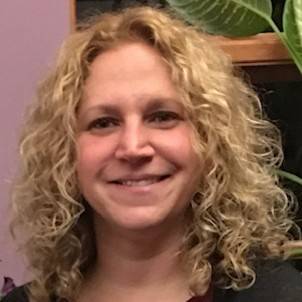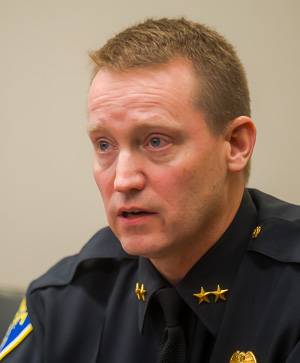Due to the very nature of their work, which involves traumatic incidents and injuries, police officers and firefighters have a higher likelihood of developing addictions to opioids as a result of stress and mental health issues, Lynda Battaglia says.
And as director of Genesee County’s Mental Health Department, Battaglia wants to alleviate those employees’ stressors in any way possible — beginning right alongside of them.

"We think of the physicality of their jobs. The extra gear and uniform and what they have to carry, what they have to do, physically, they're more susceptible to potential injury as well as acute or chronic pain, oftentimes, which is treated with opioids,” Battaglia said during this week’s City Council meeting. “On top of that, we have their continued and repeated exposure to traumatic events every day that they are working. They're responding to calls that are unpredictable. They have very high stress jobs. We couple mental health with the physical demands of the job, coupled with, you know, the potential for high risk. These disciplines are at higher risk for developing dual diagnosis, which is mental health and opioid addiction.
"So by us getting ahead of the curve and developing this program and doing check-ins, it will allow for firefighters and officers to just be able to share what's on their mind, that they can get that out instead of keeping it in. To keep it in it just grows, and that's when real problems start to be created,” she said. “So we need to address it more in the moment. I'll have specific and certified counselors assigned to this program that are culturally competent, that they understand the work that these two professions do in these two departments.”
Mental health is becoming a larger issue for public safety officers across the country, Batavia Police Chief Shawn Heubusch said. It’s part of the city’s police and fire pilot wellness program for embedded services in both departments. Services will be paid for with $18,000 from an Opioid Abatement Fund through Genesee County.
Bi-annual mental health check-ins will be scheduled every six months with licensed mental health professionals, with a focus on assessing mental health and providing support. There will be ride-alongs at least once a year to offer opportunities for clinicians to accompany officers and firefighters during their actual working shifts, plus periodic wellness workshops, which will be open to all officers, firefighters and their families, and crisis intervention as needed.

“So a lot of the programs that we're looking at doing are, they're not groundbreaking, but they're simple and to the point. We're going to look at some mental health check-ins with our officers and our firefighters. They'll be scheduled on a regular basis. Obviously, we're in August now, so probably one before the end of the year, and then, evaluate the program moving forward right along,” he said. “So we'll have clinicians right along with the officers and with the firefighters on staff to get a better understanding of their jobs and what some of the stressors are and try to assist them with whatever that may be. A lot of it will be breaking down barriers between public safety individuals and mental health. That's the biggest thing we have to overcome.
“So we're pretty excited about the program. We've been talking about it for a long time, doing everything that we can support our officers and our public safety employees in the city,” he said. “We think this is a huge step forward, and I want to thank Linda for the opportunity to partner with us also.”
City Council President Eugene Jankowski Jr., a former police officer and retired lieutenant, added that’s “another step in a positive direction, it’s a positive thing to address this.”
Heubusch emphasized that he was not looking for any direct feedback from the clinician sessions spent with officers; there wouldn’t be any reports issued to him, and the police union has not opposed this plan, he said.
“It’s just getting the officers, firefighters, accustomed to that person that's with them, and then breaking down the barriers, having some conversation. It's not a fitness for duty type thing, or anything like that. That is really just having a support mechanism for our staff and an outlet at some point in time,” he said. “One of the biggest things that is climbing in our field is suicide, and unfortunately, officers are seeing that there's no other out for them so we want to do everything we can to wrap services around them if they need it. If something comes up where there is a need for further services or treatment, those are discussions that we'll have.”
These sessions were not going to be considered formal therapy, Battaglia said, just an opportunity for employees to talk and share with the mental health professionals.
